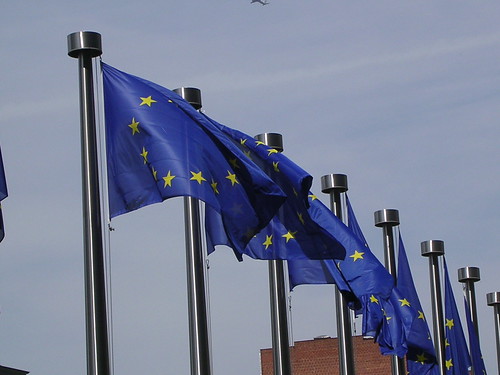(Source: Financial Times)
Published with the support of The European Commission, United Nations, ERTICO and The OECD, The Intelligent Transport briefing was introduced by Eva Molnar Director for Transport UNECE, Antonio Tajani Vice President and Commissioner for Transport, European Commission, Denise Plumpton, The UK Highways Agency, German Minister for Transportation Wolfgang Tiefensee and French Transport Minister Dominique Bussereau.
The briefing was inserted into and distributed by The Financial Times in March 2009 throughout all European and Scandinavian territories. Government agencies within Europe will account for another 20,000 copiesThe Financial Times with its exceptional business coverage and focus continues to dominate the market for the delivery of c-level executives and decision makers at the highest level and as such provides the perfect home for this briefing. Building intelligence into our vehicles and infrastructures can make a positive long term contribution to resolving the problems society and business face in terms of congestion, reliability, safety security and the environment.
In the European Union alone, 20 per cent of GDP is generated by the transport sector. This equates to 1,900 billion euros, 16 million jobs, or nine per cent of all EU employment. How do we improve safety and security, and how do we minimise the negative environmental impact of many transport systems? These are not easy questions, but all answers depend not least on putting greater intelligence into our infrastructures and transport systems, in turn helping users make more intelligent choices about their journeys.
Containing more than 30 case studies The 36 page briefing provides a comprehensive source of advice and guidance for board level executives, senior management and Government executives explaining deployments in a variety of modes and with varying applications. It features real-life examples, case studies and frameworks that demonstrate the successful deployment of solutions and trials across Europe and carefully analyses capabilities, possibilities and particularly advantages.
The briefing explains how EU moves towards a high quality, safer, more efficient and sustainable transport infrastructure in Europe. How we can make travel mass transit and ticketing more efficient (safer, less polluting, cheaper, and better informed).How we can help achieve ‘Best Value’ as a result of greater information gathering and improved decision-making. How we can reduce the effects of pollution from vehicles by better management. How we can reduce the number of accidents by providing drivers with more information about conditions on the roads they are using. How we help drivers find the best route to their destination, and change that route if major incidents occur on it. How we can help improve the security of passengers and staff by providing extra communications, better information and how to improve integration between different management systems, through the use of common databases. The report will gives readers of the Financial Times essential insight into how organisations have approached such implementations and the benefits that have been derived in a number of sectors.
Click here to read more or read/download the PDF file here. (Image below is the ITS Briefing Supplement’s cover)




